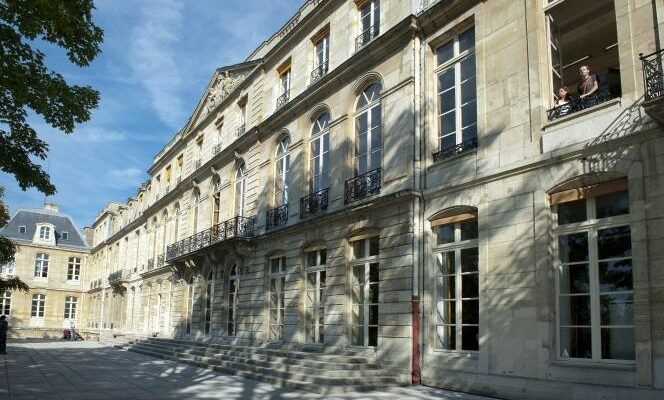The signing on August 30 by the network of engineering schools ParisTech of a partnership with a Chinese university linked to the People’s Liberation Army (APL) drew the attention of the French security services. “A textbook case for the DGSI [direction générale de la sécurité intérieure] “, headlined the specialized letter Intelligence Online September 8.
The General Secretariat for Defense and National Security (SGDSN), attached to the Prime Minister and responsible for these matters, should be informed of such initiatives. It was not in this specific case, according to our information.
ParisTech, a group of schools among the best in France, had already had representation and fourteen partnerships in China since 2000. Until now, the network has worked mainly with the University of Shanghai, which feeds 20% of its student exchanges. A Franco-Chinese institute was created there in 2004.
With Xi’an Jiaotong University (in Shaanxi province, in the north-west of the country), “At this stage we have a double degree agreement framing the way of exchanging our students”, explains Christian Lerminiaux, president of ParisTech. “Since 2000, we have welcomed four students from Xi’an University out of a total of 1,500 Chinese. “ It is therefore now a question of doing more. These students are also a source of income for the schools.
Numerous flaws
However, the recent political context calls for caution. Since 2017, China has been developing a strategy of “civil-military fusion” in the technologies of the future, while strengthening its control over the country’s teacher-researchers.
In France, the government has two apparently contradictory guidelines: attracting more and more foreign students (500,000 by 2027), but also strengthening the protection of research against looting and raising awareness of higher education. threats. Over the past ten years or so, nearly 600 “restricted use areas”, laboratories working on sensitive subjects, have been created, from which doctoral students or foreign interns are excluded. Security and defense officials must keep an eye out.
This recent policy has many flaws, is already concerned by the fact-finding mission underway to the Senate on extra-European state interference in higher education, which will complete its hearings at the end of September. In one of his reviews, published on Sept. 7, an Australian senator, James Paterson, chairman of the joint intelligence commission, pointed out that 7,000 university partnership agreements were being scrutinized by the government in Canberra. In this country located on the front line in the face of Chinese interference, the law introduced this monitoring obligation in 2020.
You have 55.75% of this article to read. The rest is for subscribers only.
